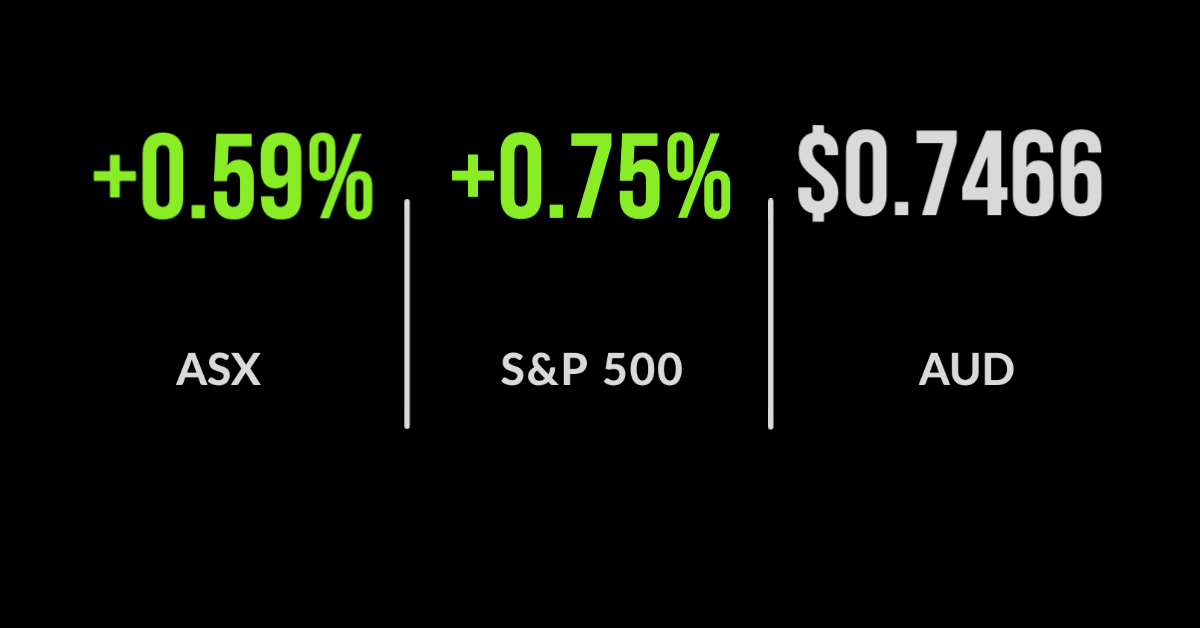Tumultuous week for ASX ends even-stevens
Positive finish to the week, Seven gets serious on Boral, property lending spikes
The ASX 200 (ASX: XJO) finished the week on a positive note, adding 0.5% behind a rally from the energy (+1.6%) and industrial (+1.2%) sectors.
The dogs of last financial year were the biggest contributors on Friday, with Nuix Ltd (ASX: NXL) and A2 Milk Company Ltd (ASX: A2M) jumping around 5% each.
Seven Group Holdings Ltd (ASX: SVW) appears to be getting serious with its $8.8 billion bid for Boral Limited (ASX: BLD) after reaching 29% ownership. They are now pushing for the company to suspend its on-market buyback. Boral shares finished broadly flat.
QBE Insurance Group Ltd (ASX: QBE) fell 0.8% after flagging it will defend claims brought against them in the Federal Court on the basis that they did not provide cover for the pandemic.
The highlight by far was IDP Education Ltd (ASX: IEL) which spiked 20.7% after announcing the acquisition of the UK’s International English Language Testing System (IELTS).
Across the week the ASX 200 was 0.8% higher, with communications (+3.2%) the top performer behind Telstra Corporation Ltd (ASX: TLS).
Retailers also benefited, with Harvey Norman Holdings Limited (ASX: HVN) supporting a 1% increase in the sector despite the downgrade from Collins Foods.
Utilities (-3.9%) continued to struggle after AGL’s poor announcement.
Seventh heaven again, job gains by unemployment increases, chip makers run continues
The S&P 500 was in seventh heaven once again, closing out the week with seven straight record finishes after adding 0.8% on Friday. This took the weekly gain to 1.7%.
The Dow Jones and Nasdaq also gained 0.4% and 0.8% for the day and 1.0% and 1.9% for the week.
The highlight was the latest employment report which showed payrolls increased by 850,000 jobs last month, just 6.8 million below its February peak.
That said, the unemployment rate increased to 5.9% in what some are calling a ‘goldilocks’ scenario where the signs are good for the economy but not necessarily enough to bring forward a rate hike.
The bond rate actually fell to 1.4% on the news, supporting the likes of Microsoft and Amazon which were up 4.8% and 3.2% for the week.
The semi-conductor sector remains in rude health despite the global shortage, with Dutch equipment supplier ASML shares jumping 1.3% after Micron Technology confirmed they would begin using their industry-leading technology from 2024.
Competitor ASM International also reported much stronger sales than originally forecasted.
Good signs for dividend, property on fire for some, tide turning for stalwarts
If the experiences of the U.S. investment banks are any sort of guide, the Australian banking sector may be in for a dividend bonanza in the next 12 months; whether they catch up to last year’s levels is a bigger question though.
In the U.S. this week, we saw multiple banks double their dividend payouts after passing regulatory stress tests and following the release of dividend restrictions applied during the pandemic.
The massive loan growth, powered by low interest rates combined with banks simplifying their business models may well bode well for dividend starved investors, at least in the short term. Long term, their business models continue to be marginalised by more nimble competitors.
This week also saw the tide turn for a number of ‘boring’ stalwarts. Both Boral and Telstra have been on a strong run lately with investors finally willing to accept Andy Penn’s vision for the future.
The sale of 49% of Telstra’s telecommunication towers, much earlier than expected, and for a solid price was a positive first step, whilst its product simplification is clearly paying dividends.
Sticking with the financial sector, May data has shown that investment lending for housing hit its strongest level since June 2015, with loan growth jumping 13.3% in May.
This was an acceleration from the 2.1% in April and shows that first home buyers are once again being usurped by more aggressive investors.







